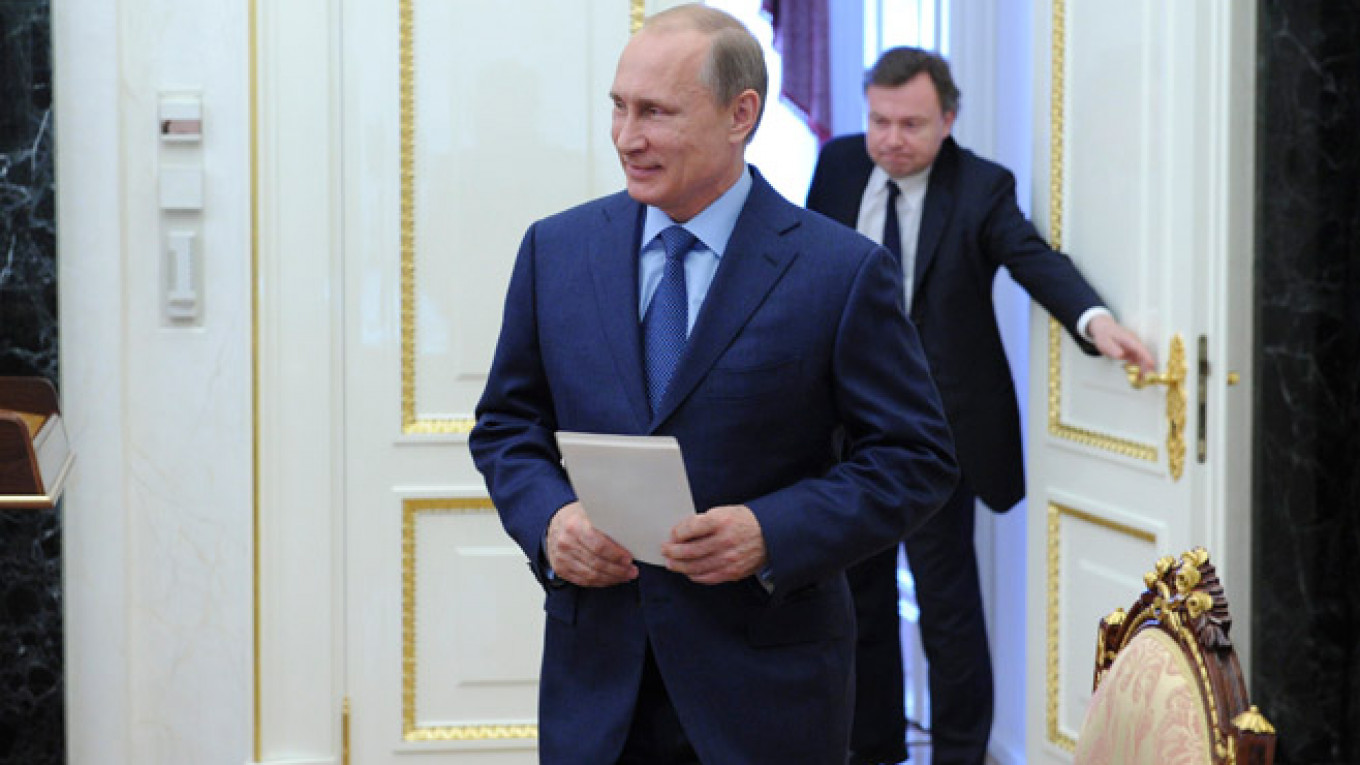President Vladimir Putin signed a flurry of new legislation on Tuesday, including:
Permanent winter: Putin signed a law reintroducing permanent winter time. Clocks in Russia will turn back one hour on Oct. 26 and will stay there permanently.
Crimea: A series of laws were signed on the integration of Crimea and Sevastopol into Russia's legal system, with particular focuses on intellectual property, sports, pensions and the financial system.
Senators: Putin signed amendments to the Constitution, vesting the president with power to directly appoint senators to the Federation Council.
Television advertisements: Putin signed a law banning advertisements on paid-access television channels, a move that caused an uproar in the industry.
Personal data: All Russians' personal data will now be stored on Russian territory. Analysts say the new law will isolate Russians as foreign websites — including hotel and airline booking sites — will be required either to store users' data in Russia, or cease operations in the country.
SMS spam: Putin signed a law regulating the mass distribution of short messages among mobile phone users. The law's aim is to fight spam messages.
Olympics: Putin signed a law liquidating Olimpstroi, a state enterprise that orchestrated the construction of Olympic infrastructure projects for the 2014 Winter Olympics in Sochi.
Abortions: Administering illegal abortions is now subject to administrative fines.
Speedy justice: The president signed a law introducing compensation in instances where justice in Russia's court system drags on too long.
Transparency: Fresh legislation requires governmental agencies to release information about their activities to civil society organizations.
Etc.: Putin signed a series of other laws, amending legislation in the financial, social, urban planning, transportation and other sectors.
See also:
Putin Signs Law Toughening Consequences for Wayward Protesters
A Message from The Moscow Times:
Dear readers,
We are facing unprecedented challenges. Russia's Prosecutor General's Office has designated The Moscow Times as an "undesirable" organization, criminalizing our work and putting our staff at risk of prosecution. This follows our earlier unjust labeling as a "foreign agent."
These actions are direct attempts to silence independent journalism in Russia. The authorities claim our work "discredits the decisions of the Russian leadership." We see things differently: we strive to provide accurate, unbiased reporting on Russia.
We, the journalists of The Moscow Times, refuse to be silenced. But to continue our work, we need your help.
Your support, no matter how small, makes a world of difference. If you can, please support us monthly starting from just $2. It's quick to set up, and every contribution makes a significant impact.
By supporting The Moscow Times, you're defending open, independent journalism in the face of repression. Thank you for standing with us.
Remind me later.






